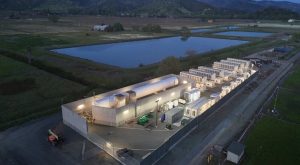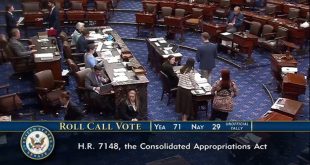 -Editorial
-Editorial
The U.S. Department of Energy has canceled its contractual commitment to provide up to $1.2 billion in federal funding for California’s hydrogen hub, a move that state officials say threatens billions in private investment and tens of thousands of jobs tied to the state’s clean energy transition.
The decision halts federal support for the Alliance for Renewable Clean Hydrogen Energy Systems, or ARCHES, a statewide public-private partnership launched to build a renewable hydrogen network. California officials said the cancellation forgoes more than $10 billion in primarily private sector cost share, jeopardizes an estimated 200,000 new jobs, and undermines plans projected to save $3 billion in annual health costs from reduced air pollution.
Gov. Gavin Newsom, who has touted hydrogen as part of California’s push toward carbon neutrality by 2045, sharply criticized the Biden administration’s reversal. “Clean hydrogen deserves to be part of California’s energy future — creating hundreds of thousands of new jobs and saving billions in health costs,” Newsom said. “We’ll continue to pursue an all-of-the-above clean energy strategy that powers our future and cleans the air, no matter what Washington tries to dictate.”
U.S. Sen. Alex Padilla, a Democrat from California, echoed the governor’s frustration. “The cancellation of ARCHES is vindictive, shortsighted, and proof this administration is not serious about American energy dominance,” he said. “Walking away from ARCHES threatens the future promise of hydrogen energy and will guarantee energy costs continue to rise for families while the rest of the world surges ahead.”
California officials said the state and ARCHES will continue working with more than 400 partners, including utilities, universities, labor organizations, and clean energy companies, to develop projects that allow industries to transition from fossil fuels to renewable hydrogen.
ARCHES was created in 2022 through a partnership between the Governor’s Office of Business and Economic Development, the University of California system, the State Building and Construction Trades Council, and the Renewables 100 Policy Institute. Structured as a nonprofit LLC, the alliance given more than 100 detailed project proposals valued at $56 billion as part of its application to the Department of Energy’s Regional Clean Hydrogen Hubs program, proved under the 2021 Bipartisan Infrastructure Law.
The DOE selected ARCHES in October 2023 to negotiate funding, and on July 17, 2024, California became the first state to sign a hydrogen hub cooperative agreement with the department. Officials said it was the largest such agreement in the agency’s history.
Hydrogen advocates say the fuel could play a key role in decarbonizing heavy-duty transportation, ports, shipping, and other hard-to-abate sectors, while providing resilience to the electric grid. California’s 2022 Scoping Plan named the need to scale renewable hydrogen production by a factor of 1,700 to meet statewide greenhouse gas reduction targets.
State leaders pointed to California’s record on clean energy as evidence of its commitment. Greenhouse gas emissions are down 20% from 2000 levels even as the state’s economy grew by 80%, becoming the world’s fourth-largest economy. In 2023, two-thirds of California’s electricity came from clean energy sources, and the state has run on 100% clean electricity for parts of most days this year.
The Department of Energy did not at once release a detailed explanation for why it canceled the California hub agreement. Without federal backing, the future of ARCHES is still uncertain, though state officials insist California will continue to expand hydrogen as part of its long-term climate and energy strategy.


